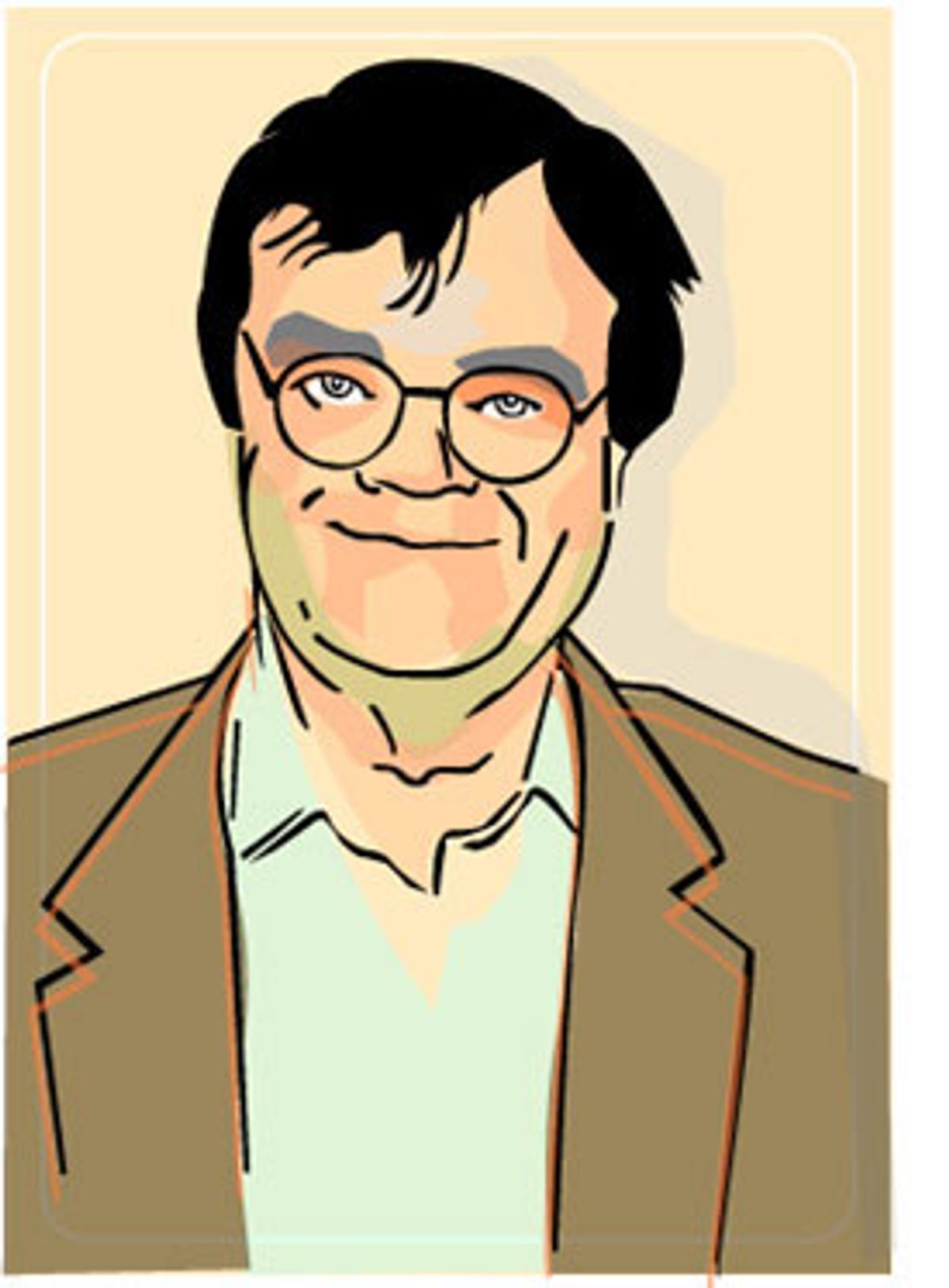It's good to know how to lie, and lie effectively, so you can go backstage after the high school production of "The Crucible" in which your friend's daughter mumbled her lines and stood like a fencepost, trying to look horrified and looking drugged instead, and now here she is, fluttery, ashen-faced, perspiring, and you say, "It was fascinating to watch. You were so in the moment, Lindsey. So believable. It really resonated with that audience, there was so much intensity." The truth is that she has no more talent than the average cocker spaniel -- but so what? There's no need to face the truth all at once.
People ask you how you are, you say fine, even if you have a grinding headache. People congratulate you on having done a fine job raising your children, you say thank you, even though you know the truth.
On the other hand, one should not lie to oneself. If the book you've been working on for two years is a leaking boat that needs to be scuttled, this is not to be denied. You look in the mirror and it's clear: The zero-dessert policy must now go into effect. Your wife says your drinking is a problem. That means it's a problem.
On the third hand, self-deception is useful. Some things are better endured by ignoring them. Old age, for one. The whining sound under your seat on the 727 flying over Lake Michigan, for another. And when you're feeling overwhelmed by your obligations, it's better just to put on your blinders and haul the beer wagon forward.
But everyone needs a few friends with whom one can be honest. I quit smoking 20-some years ago because my friend Butch Thompson and I promised each other that we'd try to quit, and that before smoking another cigarette, we would call up the other one and tell him. This worked like a charm. I dreaded having to make that call, so did he, and we each trusted the other to be honest. This is what friends are for. If you go and do a shameful thing, such as shoot your parents so you can inherit their estate, you should have at least one friend to whom you could confide the cheesy details. You'd say, "I couldn't believe that was me, aiming the pistol at the back of Mom's head as she stood at the Mixmaster. I am feeling, like, totally remorseful right now. And I'm wondering if, like, it might've been a sugar rush from, like, the Twinkies." And the friend would say, "Well, you were having some big mood swings. And the job market is tight, so naturally you were anxious about money. But those bright orange coveralls look rather striking on you. And this Plexiglas partition between us doesn't bother me as much as I had thought it would. And I don't think you would've been a good parent anyway, so it's lucky that you won't have to face that question."
I have not been that sort of close confidant to my friends, alas. They don't reveal the seamy underside of their lives to me, perhaps because I am a writer who might exploit their shameful story, or perhaps because they have no shameful secrets to share. Or because they believe you're supposed to say "Fine" when someone asks how you are.
But who tells the truth to the man who is driving straight into the setting sun and thinks he's heading due east? His wife murmurs that, uh, maybe we should look at a map, and he accuses her of being a defeatist who tries to tear him down any way she can in order to conceal her own lack of ideas. The man is heading the wrong way and speeding and the idiot light is flashing -- low oil pressure -- and the idiot is trying to be manly and authoritative but everyone can see he's faking it, hoping for God to rearrange the landscape for his convenience. Someone ought to speak up, and yet he is fascinating. As the administration is these days, so resonant and believable. The Arctic icecap melts and the Chinese finance our tax cuts and someday we will have spent six years and trillions of dollars to bring democracy to Iraq, whatever that may mean, and the SUV of state turns toward the setting sun, driven by cocker spaniels. And there is so much intensity there, and they are so much in the moment.
- - - - - - - - - - - -
(Garrison Keillor's "A Prairie Home Companion" can be heard Saturday nights on public radio stations across the country.)
) 2005 by Garrison Keillor. All rights reserved. Distributed by Tribune Media Services, Inc.

Shares